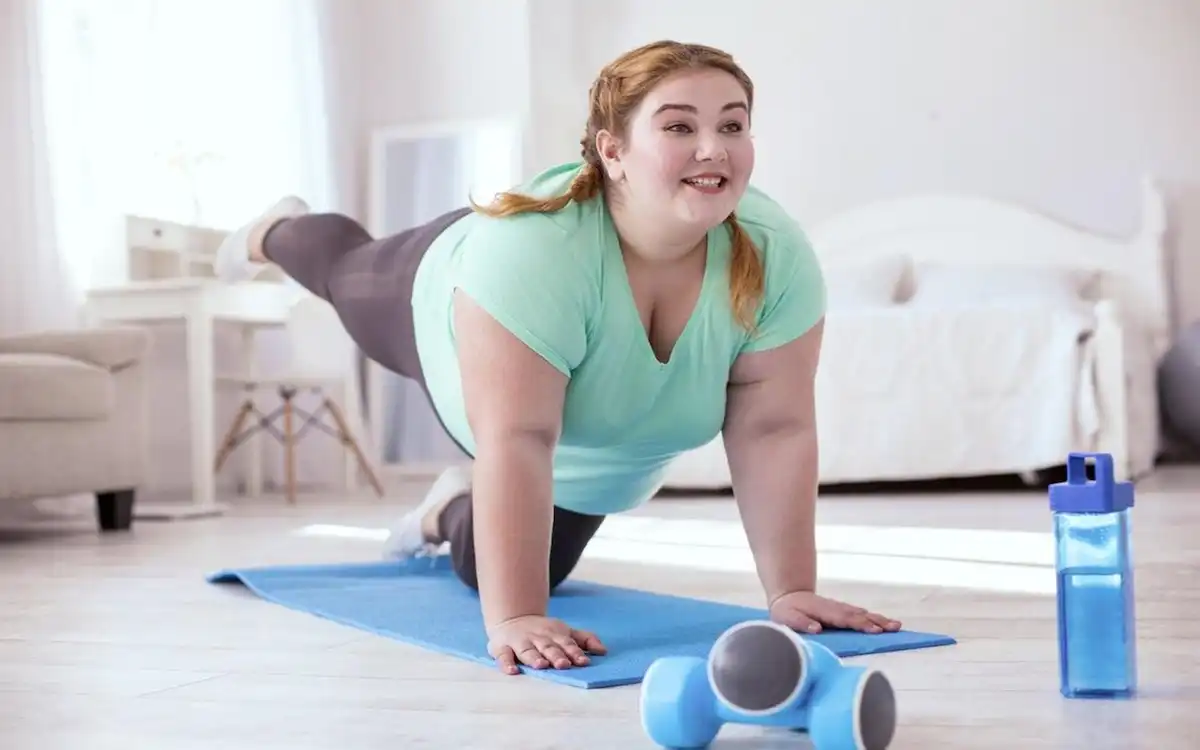There are a lot of people in the world who want to lose weight. No matter what kind of diet or workout plan people try, they are always looking for the best way to lose weight. A question that comes up a lot is: “How important is exercise for losing weight?” Many people think of working out as a way to lose weight, but the real link between exercise and fat loss is more complicated.
Understanding Weight Loss: The Caloric Equation
Maintaining a calorie deficit means burning more calories than you eat. This is the most basic way to lose weight. To work, your body needs a certain amount of energy, which is measured in calories. This is made up of your basal metabolic rate (BMR), which is the digit of calories your body burns when it’s at rest, as well as the calories you burn when you digest food and move around.
The third part is calories burned through activity, which exercise helps with. However, a lot of people think they burn more calories than they really do. A 30-minute jog could burn 250–300 calories, which is easy to make up for with a snack afterwards. That’s why focusing only on exercise without also looking at what you eat usually doesn’t produce great results.
Types Of Exercise And Their Effect On Weight Loss
1. Cardio (Aerobic Exercise)
Running, swimming, cycling, and brisk walking are all types of cardiovascular exercise. These are great for getting rid of extra calories and keeping your heart healthy. When combined with a low-calorie diet, regular cardio can help you lose a small amount of weight. But cardio’s benefits tend to stop if you don’t change what you eat.
When someone weighs 160 pounds and jogs at 5 mph for an hour, they burn about 606 calories. If they stick to this routine and watch how many calories they eat, they may lose weight steadily over time. But exercise alone isn’t always enough if you don’t change the way you eat.
2. Strength Training (Resistance Exercise)
Lean muscle mass is built by lifting weights or doing resistance exercises. Strength training doesn’t burn as many calories right away as cardio, but it does have big benefits in the long run. Since muscle is metabolically active, it burns more calories when it’s not working out than fat does. Your resting metabolic rate (RMR) goes up when you gain lean muscle mass. This means that your body burns more calories all day, even when you’re not working out. Strength training also stops muscle loss that often happens when people diet, so the weight they lose is mostly fat and not muscle.
3. High-intensity Interval Training (HIIT)
Short bursts of intense exercise are done during HIIT, followed by rest or low-intensity periods. More calories are burned in less time, and the “afterburn effect” (excess post-exercise oxygen consumption) makes calorie burning last longer. When it comes to losing fat, HIIT really works, especially visceral fat, which surrounds organs and is linked to chronic diseases.
Diet Vs. Exercise: Which Has A Bigger Impact?
Many studies have shown that what you eat is more important for losing weight than just working out. A study in Obesity Reviews, for example, found that people who only changed what they ate lost more weight than people who only increased their physical activity.
One reason is that taking in calories is a lot easier than getting rid of them. A slice of pizza may have 300 to 400 calories, which you might need to burn off by cycling for 45 minutes. That doesn’t mean exercise isn’t helpful; it helps you lose fat, keep muscle, and be healthier overall, but what you eat is more important when it comes to losing weight.
A healthy diet and regular exercise are often the best ways to get results. This works together to help you lose more fat, get in better shape, and keep the results for a longer time.
Beyond The Scale: The Other Benefits Of Exercise
While the number on the scale is one measure, exercise has many other benefits that shouldn’t be forgotten:
- Better mental health: When you exercise, your body releases endorphins, which are natural mood boosters that help people who are depressed and anxious.
- Controlling Your Appetite: Exercise helps control hormones like ghrelin and leptin, which affect how hungry or full you feel.
- Muscle Preservation: Resistance training and exercise in general help keep lean muscle mass, especially when you are cutting calories.
- Lower chance of getting chronic diseases: Regular exercise lowers the danger of developing type 2 diabetes, heart disease, and some cancers, even if you don’t lose weight.
These benefits show that regular exercise is very good for your health, even if you only lose a small amount of weight.
Why Exercise Alone May Not Be Enough
People often think that exercise can “cancel out” bad eating habits. In reality, eating more to make up for workouts or not eating enough calories can stop weight loss completely. The American Journal of Clinical Nutrition found that people often overestimate how many calories they burn while working out and then eat more to make up for it, cancelling out the deficit. The body gets used to being active. The same exercise burns fewer calories as you get in better shape. If you don’t change the intensity or length of your workouts, progress can stop.
The Ideal Strategy: Integrating Exercise For Long-term Success
The best way to lose weight and keep it off is to follow a calorie-controlled, nutrient-rich diet and do a variety of exercises, such as cardio, strength training, and flexibility work. Making a routine that you enjoy will help you stick to it, which is the most important thing for success. Focusing on wins that don’t have to do with weight, like having more energy, sleeping better, having more endurance, and wearing clothes that fit better, can help you stay motivated. A lifelong journey, not a quick fix, is also important when it comes to fitness.
Conclusion
Exercise can indeed help you lose weight, but it’s not a magic bullet. Diet is what burns calories and changes body composition, but exercise is what really makes fat loss happen. Still, exercise is an important part of a healthy lifestyle because it is good for both your body and your mind. Smart eating and regular, fun physical activity are both good ways to lose weight that will last. Not only do you want to lose weight, but you also want to get healthier.



